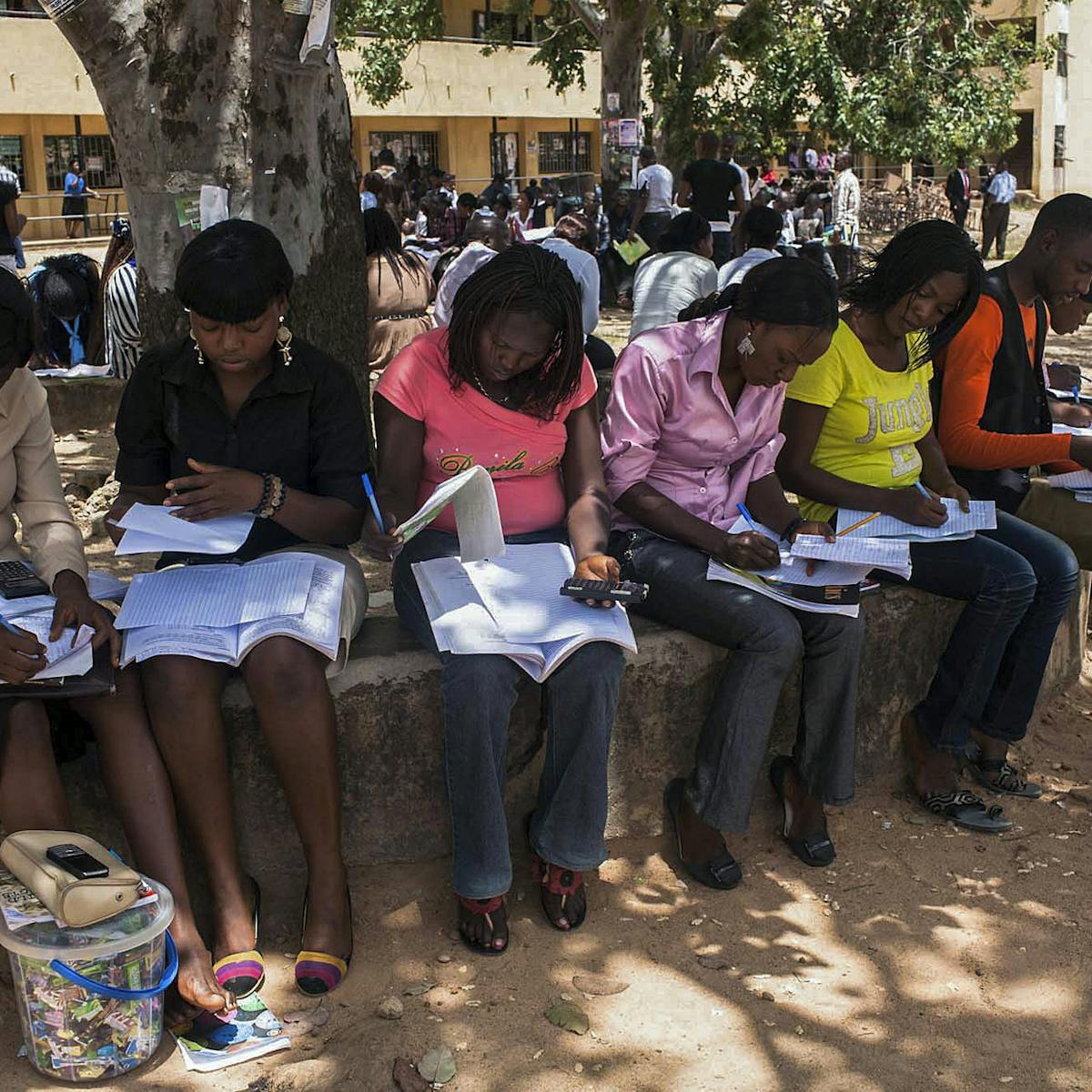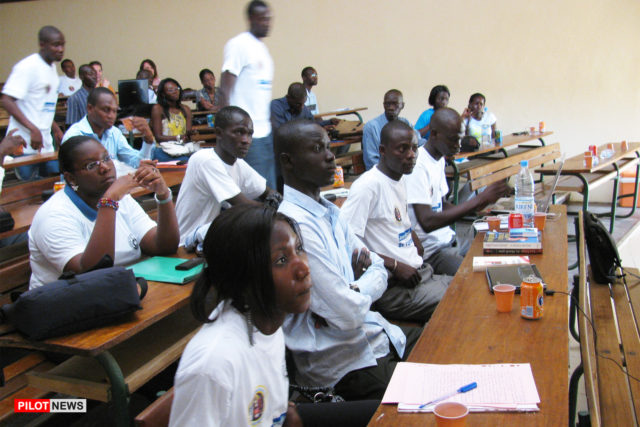The West African Pilot News Special Report
Since the outbreak of the COVID-19 virus in Nigeria, most students have been sitting at home, alternating between scrolling through Instagram, chatting on WhatsApp and being bored while trying to adapt to what might be their reality for the next few weeks or months.
In a bid to contain the spread of the virus, Nigerian authorities ordered the closure of all social spaces and banned public gatherings including all public and private institutes. With the vast majority of the country’s school buildings closed, the clamor to conduct lessons remotely has risen.

The minister of Education, Mallam Adamu Adamu during a teleconference with Vice-chancellors, rectors and provosts of Nigerian tertiary institutions emphasized the need to activate an environment for virtual learning, noting that this would enable students to keep up with their studies using their digital devices.
“COVID-19 has changed everybody. I am pleading with you to device alternative ways to make sure the education of our children will not stop. We have to create a virtual learning environment. This is the second meeting I am having. All I want is that we should fully engage our students. We are already speaking with the World Bank and UNICEF on how to create platforms for virtual learning classrooms.
“We need to take advantage of technology like the case in other parts of the world. We cannot shut down all schools when we have other means to teach our students,” Adamu said.

No alternative option for learning
A higher percentage of Nigerian schools have no alternative learning option. Most institutions are unequipped and cannot deliver online classes to students.
A report by Premium Times disclosed that learning in Nigeria has no online switch. It noted that the shut down of physical classes brought learning to an abrupt stop.
Ayobami Salami, the Vice-Chancellor of Technical University, Ibadan, noted that it is important for tertiary institutions to invest more in technology and create an environment that would enable students and lecturers to use their smartphones for teaching and learning activities.
“It is not magic, we must put a lot of machinery into place. We need to create an enabling environment within our tertiary institutions, the same phone used by students and lecturers will simply serve this function. Because the environment has not been created, students don’t see the need to use their phone beyond social media activities.”
Students clamour for online classes
The disruption of the school calendar and the possibility of having extra sessions have triggered some Nigerian students to demand platforms for E-learning.
Some fear that their institution might commence examinations immediately the banned is lifted considering that academic calendar has been disrupted. Some others are unpleased with their inability to leverage available technology.
For Nzeamalu Austine, a student of Nnamdi Azikiwe University, Akwa, sitting idle will only make students redundant and unproductive.

“Why waste so much time in a world where there is provision for other options?” He questioned.
“It very sad that my school at this point still hasn’t integrated E-learning into it system. We don’t know how long this would last. It seems redundant that we all just have to stay indoor doing nothing. Online classes should be available in safe situations much less in situations where movements have been restricted and countries are on lockdown. E-Learning is no longer a luxury; it is a necessity. It’s sad that we are not able to leverage the technology available to use in this generation,” he added.
Tobi Olarewaju, a student of Obafemi Awolowo University, Ile-Ife believes the adoption of remote learning schools in Nigeria might not be feasible at this time due to the lack of proper integration into an online system.

“Every responsible institution is not supposed to limit its learning process to physical learning alone. However, in a school like OAU, learning has been restricted to attending classrooms alone which is not supposed to be so. Obviously, the outrage of the current pandemic cannot make us adjust to this situation because we are not used to it,” he opined.
No viable distance learning system.
Addressing the lack of online learning options in Nigeria higher institutions, varsity authorities who spoke with The West African Pilot News emphasized the need for the development of distance learning systems in all institutions.
Kunle Akogun, University of Ilorin spokesperson said that although Federal government has instructed that provisions should be made for E-Learning, no university can boast of a viable distance learning system.

“No school in Nigeria is fully equipped but we will meet up. In the University of Ilorin, we have a centre for distance learning but of course, that can’t be sufficient.
‘’This a new development and it is important that all institutions in Nigeria catch up with the trend.
‘’We have to migrate. The truth is, Nigeria Universities are far behind. This is why Nigeria universities are not rated among top schools across the border. The reality is just dawning on us that we have to do more as institutes learning. Now everyone has to run helter-skelter to meet up, in other climes, remote learning is not a new thing because they are used to it already.
‘’One of the benefits of this pandemic is that we are waking up to the reality of certain necessities that have been ignored. Akogun told WAP News.
Adegbenro Adebanjo, the Federal University Of Technology, Akure, Spokesperson noted that although Nigeria has a fairly balanced internet exposure, E-learning should be allowed to penetrate deeply into all levels of education.

“Students should be able to study with their digital devices,” he said.
“Of course the world has changed and of course, every institution would necessarily change as well, in terms of how they deliver learning to their students. There appropriated this mechanism for teaching and learning. The time for it has come, and no institution can afford not to do what is relevant and right in the area of E-Learning.
“ The world is going into what we call the internet of things and most of the things we are going to be doing henceforth will continue to increase in terms of interconnectivity and reliance on the internet and its configurations. We do not have all it takes but can at least boast of a fairly balanced internet exposure,” Adebanjo added.
- Breaking: Ohanaeze President General, George Obiozor, confirmed dead - December 28, 2022
- US to support NDLEA on improved intelligence gathering capacity - December 27, 2022
- Why diversified HIV/AIDS prevention tools matter for women - December 26, 2022

